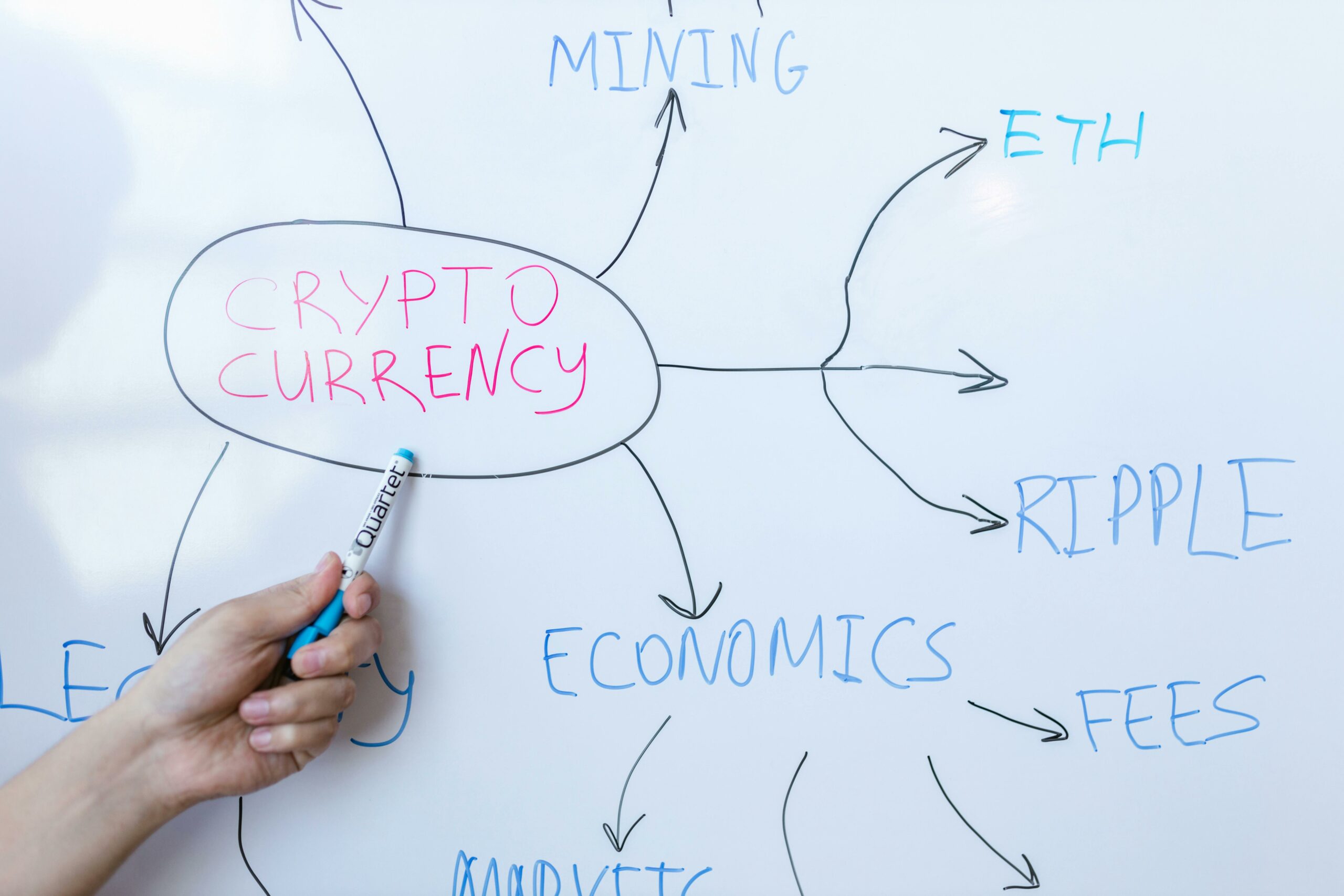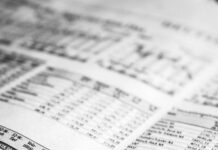Are you struggling with how to avoid overtrading in Forex and wondering why your trading account keeps draining despite your best efforts? Overtrading is one of the sneakiest pitfalls that many Forex traders fall into, often leading to unnecessary losses and emotional burnout. In this article, we’ll reveal powerful tips for smart trading that can help you stay disciplined, maximize profits, and protect your capital from the dangers of excessive trading. If you’ve ever asked yourself, “Why do I keep losing money even when the market looks favorable?” then this guide is exactly what you need to regain control and trade like a pro.
Overtrading in Forex happens when traders execute too many trades in a short period, often driven by emotions like fear or greed. This behavior can quickly erode your trading account and cloud your judgment. But, what if there were proven strategies to avoid overtrading in Forex and maintain a consistent, profitable trading routine? Whether you’re a beginner or an experienced trader, understanding how to manage your trades wisely is crucial in today’s fast-paced Forex market. We’ll dive into actionable tips such as setting strict trade limits, sticking to your trading plan, and recognizing emotional triggers that compel you to overtrade.
Stay tuned as we uncover the secrets behind smart Forex trading techniques that not only boost your confidence but also safeguard your investment. Don’t let overtrading sabotage your trading journey—learn how to harness discipline and strategic thinking for long-term success. Ready to transform your trading habits and avoid the costly mistake of overtrading? Let’s get started!
7 Proven Strategies to Prevent Overtrading in Forex for Consistent Profits
Trading forex in New York or anywhere else is exciting but it also come with its own risks, especially overtrading. Many traders falls into the trap of making too many trades in a short time, which usually leads to losses instead of profits. If you want to keep your wins consistent, it’s crucial to master how to avoid overtrading in forex. This article will cover 7 proven strategies to prevent overtrading in forex for consistent profits, and share powerful tips for smart trading you should know.
What Is Overtrading and Why It Happens?
Overtrading means executing more trades than what your strategy or plan allows. It usually happens when a trader gets emotional, impatient, or tries to chase losses. Sometimes, it because of boredom or excitement after a big win. Overtrading leads to higher transaction costs and bigger exposure to market volatility, which can destroy your capital quickly.
Historically, even professional traders in places like Wall Street or the New York forex market have faced this. In the 1990s, some traders lost millions because they overtraded without discipline and risk management. So, preventing overtrading is not just a beginner’s problem — it’s a universal challenge.
7 Proven Strategies to Prevent Overtrading in Forex
Here is a list of practical ways to avoid overtrading and keep your forex account safe.
Create a Detailed Trading Plan and Stick to It
Your trading plan should include entry and exit rules, risk limits, and profit targets. Without a plan, traders tend to trade impulsively. Write down your plan and review it before trading. This will reduce emotional decisions and unnecessary trades.Set a Maximum Number of Trades Per Day or Week
Limit how many trades you can make in a day. For example, decide to only place 3 trades per day. This helps avoid revenge trading or chasing after too many opportunities that aren’t really profitable.Use Stop-Loss and Take-Profit Orders
Stop-loss limits your losses on a trade, and take-profit locks your gains. If you have these orders set, you won’t feel the need to constantly watch and enter new trades to fix mistakes. It control your emotions and overtrading.Keep a Trading Journal
Write down every trade you make, including why you took it, what went right or wrong, and how you felt. Over time, you can identify patterns of overtrading and fix them. This self-awareness is key in smart trading.Avoid Trading When Emotionally Distressed
If you are angry, tired, or stressed, your judgment is impaired. Many traders overtrade when they are in emotional states trying to “win back” losses. Take a break instead. Walk away from the screen until you calm down.Focus on Quality, Not Quantity
Instead of making many small trades, concentrate on high-quality setups that meet your criteria. This reduces the temptation to trade too often. Remember, not every market move is a trading opportunity.Use Automated Trading Tools Carefully
Some traders use Expert Advisors (EAs) or bots to trade forex. While these can reduce emotional trading, if not monitored, they might overtrade based on programmed signals. Always supervise automated systems and adjust settings to avoid excessive trades.
Powerful Tips For Smart Trading to Avoid Overtrading
Besides the main strategies, here are some quick tips that can help you trade smarter and stop overtrading.
- Take regular breaks during trading sessions. Sitting in front of charts for hours makes you restless and impulsive. Step away every hour or so.
- Set daily profit and loss limits. If you reach your loss limit, stop trading for the day. If you hit your profit goal, consider pausing to protect your gains.
- Don’t trade on rumors or news without confirmation. Impulse trading during high volatility news releases often leads to overtrading and losses.
- Practice patience and discipline. Sometimes, the best trade is no trade at all. Waiting for the right setup is better than forcing trades.
- Educate yourself continuously. The forex market change constantly; staying informed helps you trade confidently, not anxiously.
Comparison Table: Overtrading vs Disciplined Trading
| Aspect | Overtrading | Disciplined Trading |
|---|---|---|
| Number of Trades | Excessive, often impulsive | Limited and planned |
| Emotional State | Stressed, anxious, frustrated | Calm, patient, focused |
| Risk Management | Often ignored | Strictly followed |
| Trading Plan | Rarely followed or absent | Clearly defined and adhered to |
| Profitability | Usually inconsistent or negative | Consistent profits over time |
| Use of Stop-Loss |
How to Identify and Stop Overtrading Patterns in Forex Trading Today
Forex trading has become one of the most popular ways people try to make money on the internet today. But many traders, especially beginners, often fall into a common trap called overtrading. This is when traders make too many trades in a short period, usually driven by emotions or impatience, which often leads to losses. How to identify and stop overtrading patterns in forex trading today is very important for anyone who wants to be successful in the market. Overtrading can destroy your trading account faster than you expect if you don’t manage it well.
What is Overtrading in Forex?
Overtrading happen when a trader enters into too many trades, often without a clear strategy or proper analysis. This may be caused by excitement, frustration, or trying to recover losses quickly. Many traders think that more trades means more chances to win, but that’s not true. Actually, overtrading usually leads to more mistakes and bigger losses. It’s like when you try to catch too many fish at once and end up catching none or losing your bait.
How to Identify Overtrading Patterns
Recognizing when you overtrade is the first step to stop it. Here are some common signs you might be overtrading:
- Taking trades without proper analysis or plan.
- Increasing trade size impulsively after losses.
- Trading during bad market conditions or when you are tired.
- Feeling anxious or stressed about missing trades.
- Ignoring your trading journal or risk management rules.
For example, if you find yourself checking the charts every minute and placing trades without waiting for confirmation signals, that’s a red flag. Also, if your win rate suddenly drops but your trade frequency increases, it means you are probably overtrading.
Why Overtrading Happens: A Little History
Overtrading is not new. Even professional traders in the old days, before the internet and electronic trading platforms, faced this issue. In the past, traders used to trade manually on the phone or floor, and sometimes they got too greedy or nervous, leading to similar mistakes. With today’s technology, it’s easier to trade anytime, anywhere, but that also means temptation to trade too much is stronger. Understanding this context helps us realize that overtrading is more about human psychology than market conditions.
Powerful Tips For Smart Trading: How to Avoid Overtrading in Forex
Avoiding overtrading require discipline and good habits. Here are some powerful tips you can implement right now:
Create a Trading Plan and Stick to It
Write down your entry and exit rules, risk management, and maximum trades per day or week. Following a plan helps reduce impulsive decisions.Set Daily or Weekly Trading Limits
Decide how many trades or how much money you are willing to risk before you start trading. When you reach that limit, stop trading for the day.Use a Trading Journal
Record every trade including reasons for entering, emotions felt, and results. Reviewing your journal helps you spot overtrading tendencies.Focus on Quality, Not Quantity
Wait for high-probability setups instead of chasing every signal. It’s better to miss some trades than to take bad ones.Manage Your Emotions
Take breaks when you feel frustrated or excited. Emotional trading often leads to overtrading and losses.Avoid Trading When Tired or Distracted
Fatigue reduces your ability to think clearly and increases mistakes.Automate Some Trading Rules
Use stop-loss and take-profit orders to limit risks. Some traders use automated systems or alerts to avoid impulsive trades.
Practical Example of Overtrading Vs Smart Trading
Imagine two traders, John and Sarah. John trades impulsively every time he sees a small price movement; he makes 20 trades a day but loses more than he wins. Sarah, on the other hand, trades only 3 to 5 times a week after careful analysis and sticks to her risk management. Sarah’s account grows steadily, while John’s account shrinks quickly. This simple comparison shows how avoiding overtrading can improve your chances of success.
Comparison Table: Overtrading Vs Smart Trading
| Aspect | Overtrading | Smart Trading |
|---|---|---|
| Number of Trades | High frequency, impulsive | Limited, planned |
| Risk Management | Often ignored or weak | Strict and consistent |
| Emotional Control | Poor, driven by fear or greed | Calm and disciplined |
| Trade Quality | Low, many bad setups | High, only high-probability trades |
| Results | Usually losses over time | Steady profits and growth |
Why It’s Difficult to Avoid Overtrading
Many traders understand the risks but still overtrade because of psychological traps.
The Ultimate Guide to Smart Forex Trading: Avoiding Costly Overtrading Mistakes
The world of forex trading can be both exciting and overwhelming at the same time. Many traders, especially beginners, often fall into the trap of overtrading, which can lead to costly mistakes and diminished profits. The ultimate guide to smart forex trading involves understanding what overtrading is, why it happens, and most importantly, how to avoid it. This article will explore practical tips and strategies to help traders stay disciplined and make smarter decisions in the fast-paced forex market.
What is Overtrading in Forex?
Overtrading happens when a trader executes too many trades in a short period without proper analysis or strategy. This behavior often results from emotional reactions like fear, greed, or impatience. Instead of waiting for clear trading signals, some traders rush into the market, thinking they can capitalize on every small price movement.
Historically, overtrading has been one of the biggest reasons why many forex traders lose money. Even experienced traders can sometimes fall prey to this mistake during volatile market conditions. Overtrading not only increases transaction costs due to spreads and commissions but also exposes traders to higher risks of making poor decisions.
Why Traders Overtrade: Common Causes
Understanding why overtrading happens is the first step to avoid it. Some common reasons include:
- Emotional reactions: Traders often get emotionally attached to their trades or feel pressured to recover losses quickly.
- Lack of a clear trading plan: Without a well-defined strategy, traders tend to act impulsively.
- Overconfidence: After a series of wins, some traders believe they can’t lose and start trading excessively.
- Market noise: Short-term market fluctuations can lure traders into making unnecessary trades.
- Desire for quick profits: The urge to make fast money can override rational thinking.
How To Avoid Overtrading In Forex: Powerful Tips For Smart Trading
Avoiding overtrading requires discipline and a structured approach. Here are some practical tips to help you trade smarter:
Develop A Trading Plan and Stick To It
Create a comprehensive trading strategy including entry and exit rules, risk management guidelines, and profit targets. Review and update your plan regularly but resist the temptation to deviate from it based on emotions.Set Maximum Daily Trade Limits
Determine the maximum number of trades you will take in a day or week. Once you hit that limit, stop trading and take a break.Use Proper Risk Management
Never risk more than a small percentage of your trading capital on a single trade. This helps prevent large losses that can lead to revenge trading.Keep A Trading Journal
Record every trade you make including reasons for entering and exiting, emotions felt during the trade, and outcomes. This habit helps identify patterns of overtrading and improves decision-making.Avoid Trading During High-Volatility Periods Without Preparation
Forex markets can be extremely volatile during economic data releases or geopolitical events. Unless you have a clear plan, avoid trading during these times to prevent impulsive decisions.Employ Automated Trading Tools or Alerts
Consider using trading bots or setting alerts for specific market conditions. This can reduce the urge to constantly monitor the market and place unnecessary trades.
Comparing Overtrading vs. Smart Trading
| Aspect | Overtrading | Smart Trading |
|---|---|---|
| Number of Trades | Excessive and impulsive | Limited and planned |
| Emotional Control | Poor, driven by fear and greed | High, based on discipline |
| Risk Management | Often ignored or inadequate | Strictly followed |
| Profitability | Usually low or negative | Consistent and sustainable |
| Trading Plan | Absent or frequently ignored | Well-defined and adhered to |
Real-Life Example: The Cost of Overtrading
Consider a trader named John who started with $10,000. He became enthusiastic after a few early wins and began trading multiple times in a day without a solid plan. Over the next month, John placed over 100 trades, many of them based on gut feelings rather than analysis. Because of high transaction costs and several losing trades, his account shrank to $6,500. John learned that overtrading not only drained his money but also his confidence.
On the other hand, his colleague Sarah, who traded less frequently but followed a strict strategy, managed to grow her account steadily over the same period.
Practical Steps to Implement Right Now
If you feel like you might be overtrading, try these quick actions:
- Pause and count how many trades you made in the past week.
- Review your trading journal for emotional notes.
- Reassess your risk per trade and adjust it down if needed.
- Set alarms to remind you when you reach your daily trade limit.
- Practice patience by waiting for
Top 5 Psychological Triggers That Lead to Overtrading and How to Overcome Them
Trading forex in New York or anywhere else can be thrilling but also dangerous when emotions take the control. Many traders, especially beginners, fall into the trap of overtrading—a situation where they enter trades too often or with too much risk, usually resulting in losses. Overtrading is often caused not just by market conditions but psychological triggers that distort decision-making. Understanding these triggers and learning how to manage them is essential for smart trading. So, what exactly causes overtrading and how can you avoid it?
Top 5 Psychological Triggers That Lead to Overtrading
Overtrading often starts in the mind, influenced by various psychological factors. Here are the most common triggers:
Fear of Missing Out (FOMO)
Many traders suffer from FOMO when they see a strong trend or hear about others making profits. This fear pushes them to jump into trades impulsively without proper analysis. It’s like chasing the market instead of waiting for the right setup. Historically, FOMO has caused many traders to enter at the peak of a move, leading to losses.Revenge Trading
After a losing trade, some traders try to win back their losses quickly by placing more trades. This emotional reaction clouds judgment and risks more capital. It’s like trying to fix a broken clock by hitting it harder—more damage than repair.Overconfidence After Wins
Winning streaks can make traders too confident. They might increase trade sizes or frequency thinking they can’t lose, which is dangerous. Overconfidence often leads to reckless trading and big losses when the market turns.Impatience
Forex markets don’t always move fast or in the direction you want. Impatient traders try to force trades or exit early, leading to unnecessary trades and missed profits. Patience is key but often overlooked in fast-paced trading environments.Lack of a Trading Plan
Without clear rules for when to enter or exit trades, traders trade on emotions or hunches. This lack of discipline is a major cause of overtrading. A well-defined trading plan acts like a roadmap and helps to avoid impulsive decisions.
How To Avoid Overtrading In Forex: Powerful Tips For Smart Trading
Preventing overtrading requires discipline and self-awareness. Below are practical tips that can help you trade smarter and protect your account:
Set Daily or Weekly Trade Limits
Decide beforehand how many trades you will make and stick to it. This prevents impulsive decisions and keeps your trading volume manageable.Keep a Trading Journal
Recording every trade with reasons, emotions, and outcomes helps you identify patterns of overtrading or emotional mistakes. Reviewing your journal regularly improves self-awareness.Use Stop-Loss and Take-Profit Orders
Automating exits reduces emotional interference. Setting these orders based on your strategy helps you stick to your plan and avoid chasing the market.Take Breaks After Losses
Stepping away after a loss calms emotions and stops revenge trading. It’s better to miss a trade than ruin your account trying to recover fast.Follow a Trading Routine
Having a consistent routine, including market analysis before trading hours, prepares you mentally and reduces impulsive trades.
A Comparison of Smart Trading Vs Overtrading
| Aspect | Smart Trading | Overtrading |
|---|---|---|
| Decision Making | Based on strategy and analysis | Driven by emotions and impulsiveness |
| Trade Frequency | Controlled and limited | Excessive and random |
| Risk Management | Strict stop-loss and position sizing | Ignored or poorly implemented |
| Emotional State | Calm and disciplined | Anxious, frustrated, or overconfident |
| Outcome | Consistent profits or manageable loss | Large drawdowns and account depletion |
Practical Examples of Overtrading and How to Fix Them
Imagine a trader who loses one trade and immediately opens five more to recover the loss. This is revenge trading and often leads to bigger losses. Instead, the trader should take a break, review the mistake, and only trade when the next valid setup appears.
Or consider a trader who sees a strong uptrend and opens multiple buy orders out of fear missing out. Instead, waiting for a retracement or confirmation signal before entering can save from entering at a market top.
Historical Context: Why Overtrading Still Happens
Overtrading is not a new problem. Even in the early days of forex and stock trading, psychological traps have caused traders to lose money. The rise of online platforms and easy market access made it worse by enabling instant trading at any time. With 24-hour forex markets, the temptation to trade nonstop is high. Learning from past mistakes and understanding human psychology remains crucial.
In conclusion, avoiding overtrading in forex requires more than just technical
Step-by-Step Tips to Manage Risk and Avoid Overtrading in Forex Markets Effectively
Navigating the forex market can feel like walking a tightrope without a safety net sometimes. Many traders, especially newbies, fall into the trap of overtrading and taking uncalculated risks, which usually leads to losses. Learning how to manage risk and avoid overtrading in forex is crucial for long-term success and sanity. This article shares step-by-step tips to help traders, whether you are in New York or anywhere else, to trade smarter, not harder.
What is Overtrading in Forex and Why It Happens?
Overtrading means placing too many trades in a short period or risking too much money per trade. It’s a common mistake made by traders who want to chase quick profits but ends up wiping out their accounts. Overtrading occurs due to emotional reactions like fear, greed, or boredom. For example, after a big win, some traders feel invincible and open multiple positions without analysis. Or after a loss, they try to recover quickly by entering impulsive trades. This behavior not only increases transaction costs but also magnifies exposure to market volatility.
Historically, many forex market crashes and personal trading bankruptcies are linked with overtrading. Even professional traders sometimes admit that controlling the urge to overtrade is one of the hardest things in trading. So, understanding why overtrading happens already gives you an edge to avoid it.
Step-by-Step Tips to Manage Risk in Forex Trading
Risk management is like the backbone of successful trading. Without it, even accurate predictions won’t save you. Here’s how to do it properly:
Set a Risk Percentage Per Trade
Never risk more than 1-2% of your trading capital on a single trade. For example, if your account balance is $10,000, the maximum loss per trade shouldn’t exceed $100-$200. This way, a few losing trades won’t destroy your entire account.Use Stop-Loss Orders Religiously
Always place a stop-loss that matches your risk tolerance. Stop-loss help you automatically exit losing trades before losses escalate. In volatile forex pairs like GBP/JPY, stops are essential to protect your capital.Determine Your Position Size Wisely
Position sizing depends on your risk percentage and stop-loss distance. If your stop-loss is 50 pips and you want to risk $100, your position size should equal $2 per pip. Calculating this prevents you from taking oversized positions unknowingly.Diversify Currency Pairs
Instead of focusing all your trades on a single currency pair, spread your risk across different pairs. For instance, trading both EUR/USD and USD/JPY may reduce risk because they don’t always move in the same direction.Keep an Eye on Economic Calendars
News events often cause sudden price spikes. Knowing when major announcements like Non-Farm Payrolls or central bank meetings are scheduled helps you avoid risky trades during these volatile periods.
How To Avoid Overtrading In Forex: Powerful Tips For Smart Trading
Avoiding overtrading requires discipline, plan, and sometimes just plain old patience. Here are some practical tips to keep your trading under control:
Create and Stick to a Trading Plan
Write down your entry, exit, and risk criteria before you trade. A solid plan stops you from jumping into random trades based on whimsy.Limit Number of Trades Per Day
Decide in advance how many trades you will take daily. For example, limit yourself to 3 trades per day maximum. This reduces unnecessary exposure and helps focus on quality setups.Track Your Trading Journal
Record every trade with reasons, outcomes, and emotions felt. Reviewing this helps identify patterns like impulsive trades or revenge trading, which you can then correct.Take Breaks After Losing Streaks
If you lost 3 trades in a row, stop trading for the day. Taking a break reduces emotional trading and prevents chasing losses.Focus on Quality Over Quantity
Look for high-probability setups rather than trading every signal. For instance, wait for confirmation from multiple indicators before entering a trade.
Comparisons: Overtrading vs. Smart Trading
| Aspect | Overtrading | Smart Trading |
|---|---|---|
| Number of Trades | Many random trades daily | Limited and planned trades |
| Emotional Control | Driven by fear, greed, or boredom | Controlled and disciplined |
| Risk per Trade | Often high or undefined | Low, fixed percentage of capital |
| Use of Stop-Loss | Rarely used or ignored | Always used consistently |
| Trading Plan | No plan or constantly changing plan | Clear, written, and followed plan |
| Outcome | High losses and account drawdowns | Steady |
Conclusion
In conclusion, avoiding overtrading in forex requires discipline, a well-defined trading plan, and emotional control. By setting clear entry and exit criteria, adhering to strict risk management rules, and maintaining a trading journal, traders can better evaluate their performance and avoid impulsive decisions. It’s crucial to recognize the signs of overtrading, such as excessive frequency of trades driven by frustration or greed, and take proactive steps to pause and reassess strategies. Additionally, focusing on quality trades rather than quantity helps preserve capital and improve long-term profitability. Remember, successful forex trading is not about constant activity but about making informed, strategic decisions that align with your goals. Stay patient, stick to your plan, and continuously educate yourself to build sustainable trading habits. If you’re ready to take control of your forex journey, start implementing these practices today to safeguard your investments and enhance your trading success.




















